Vocabulary expansion Phonics Worksheets for Ages 5-7
54 filtered results
-
From - To
Enhance your child's language skills with our engaging Vocabulary Expansion Phonics Worksheets designed specifically for ages 5-7! These interactive resources promote language development and reading fluency through fun activities centered around phonics and vocabulary. Each worksheet encourages children to explore new words while honing their listening and writing skills. By integrating phonetic sounds with engaging vocabulary exercises, we help young learners build a strong foundation for reading success. Perfect for classroom use or at-home learning, our worksheets create a stimulating educational experience that fosters confident communication. Unlock the power of words and support your child's literacy journey today!
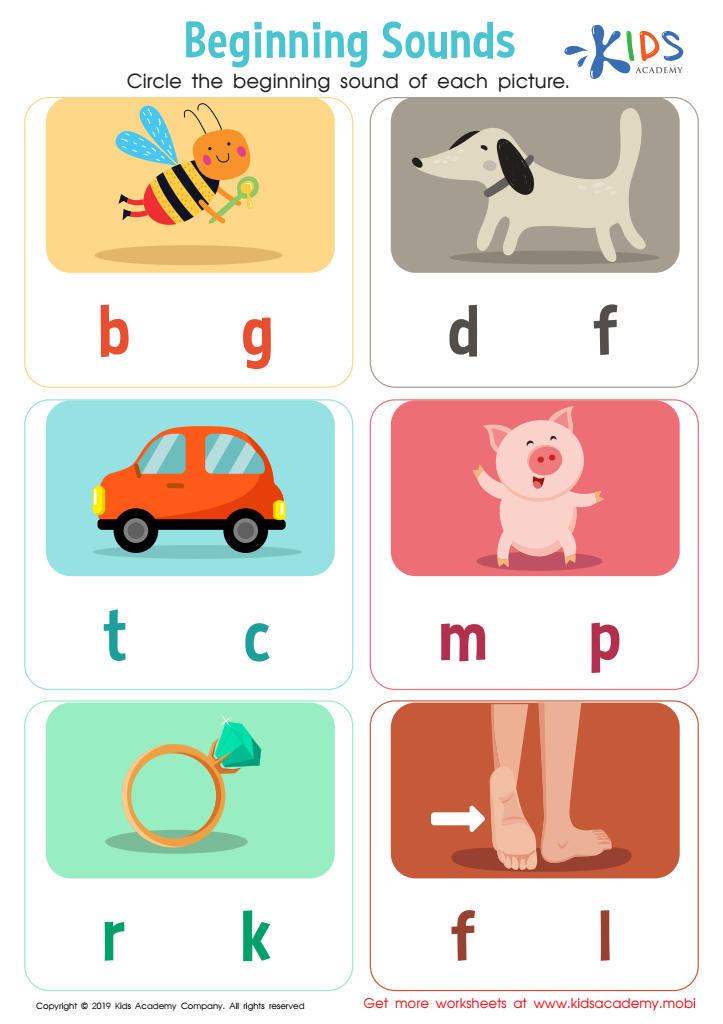

Beginning Sounds Worksheet
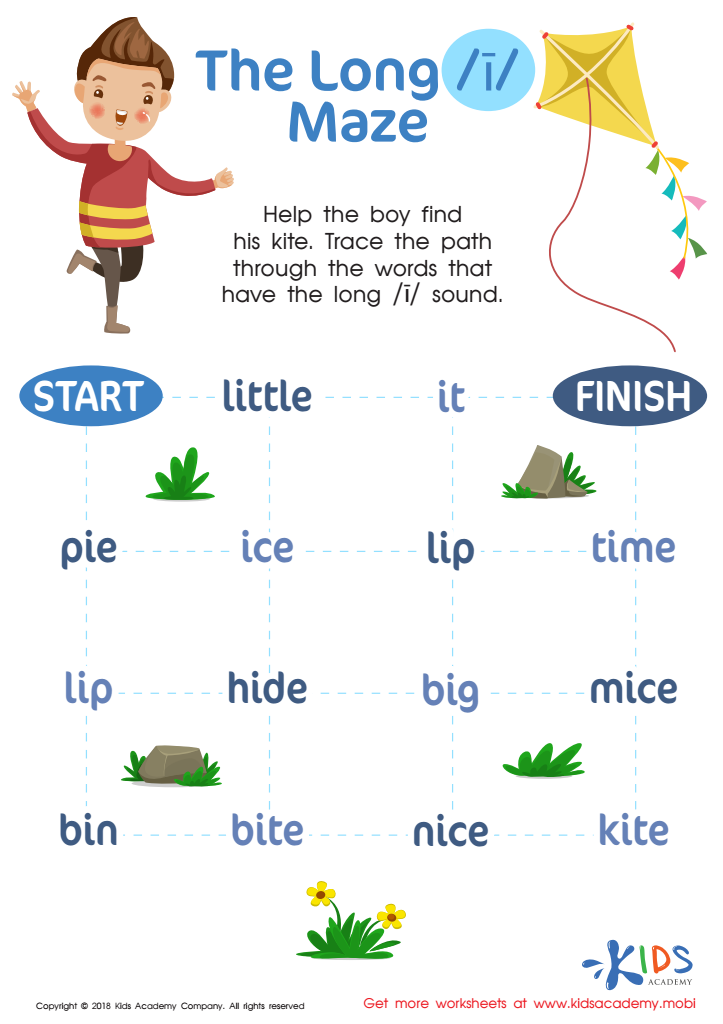

The Long I Maze Reading Worksheet
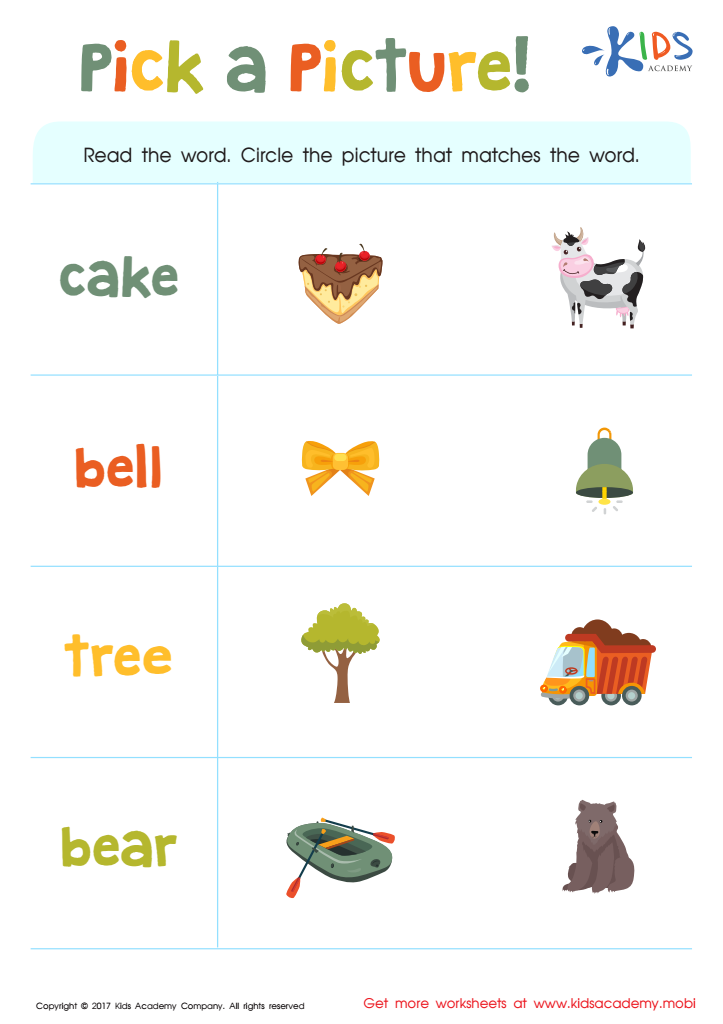

Pick a Picture Word Recognition Worksheet


Rhymes in Poems Worksheet
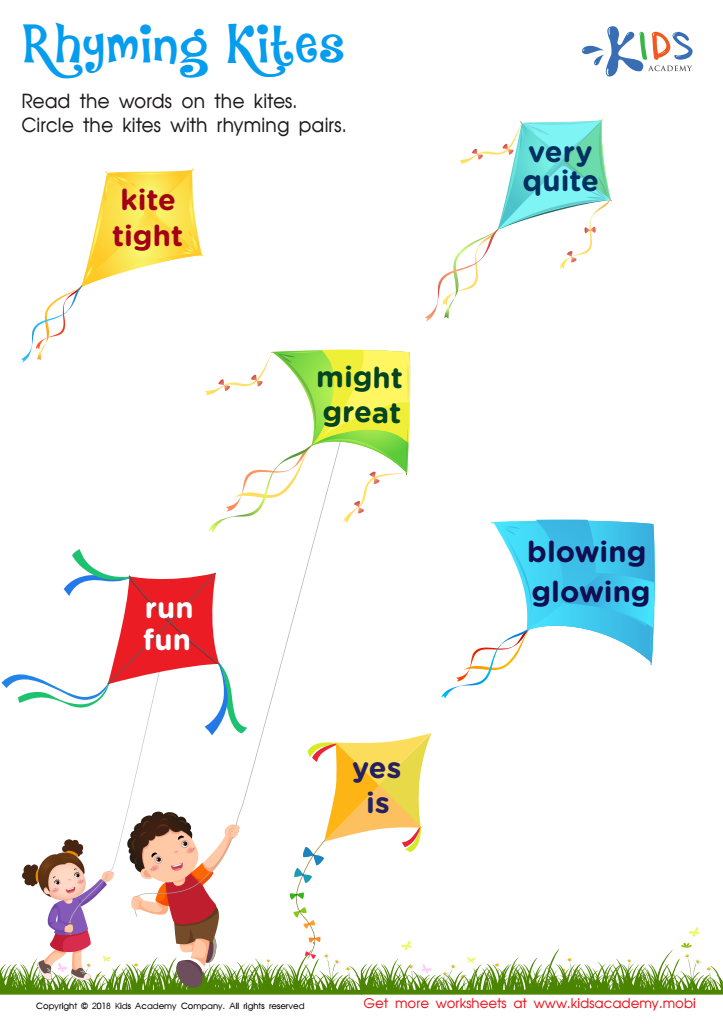

Rhyming Kites Worksheet
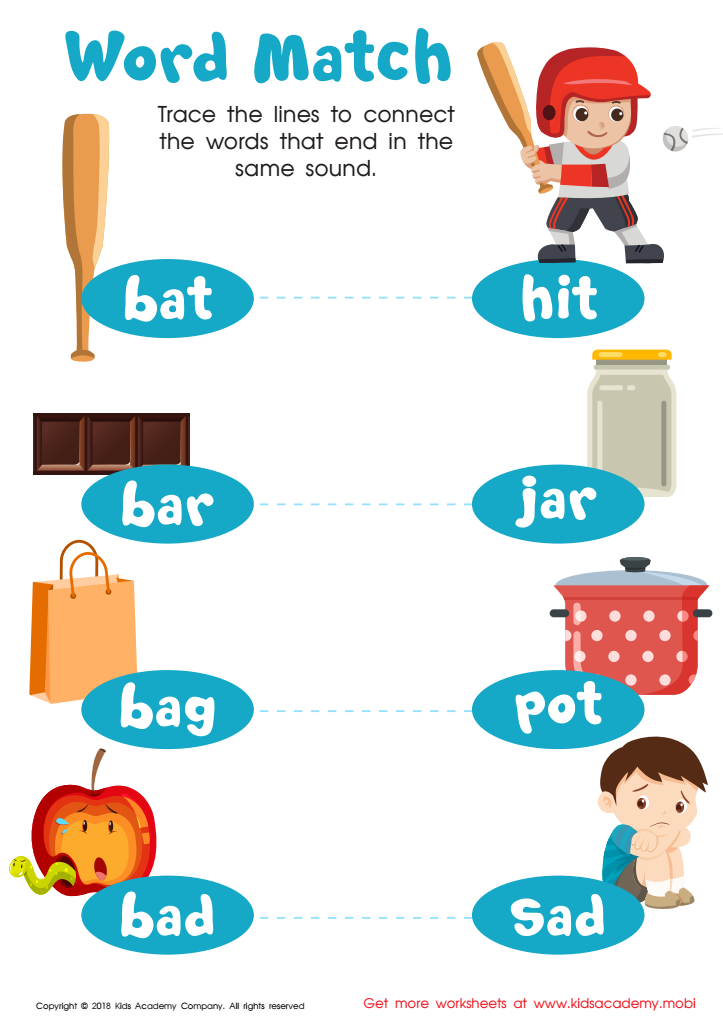

Word Match Reading Worksheet
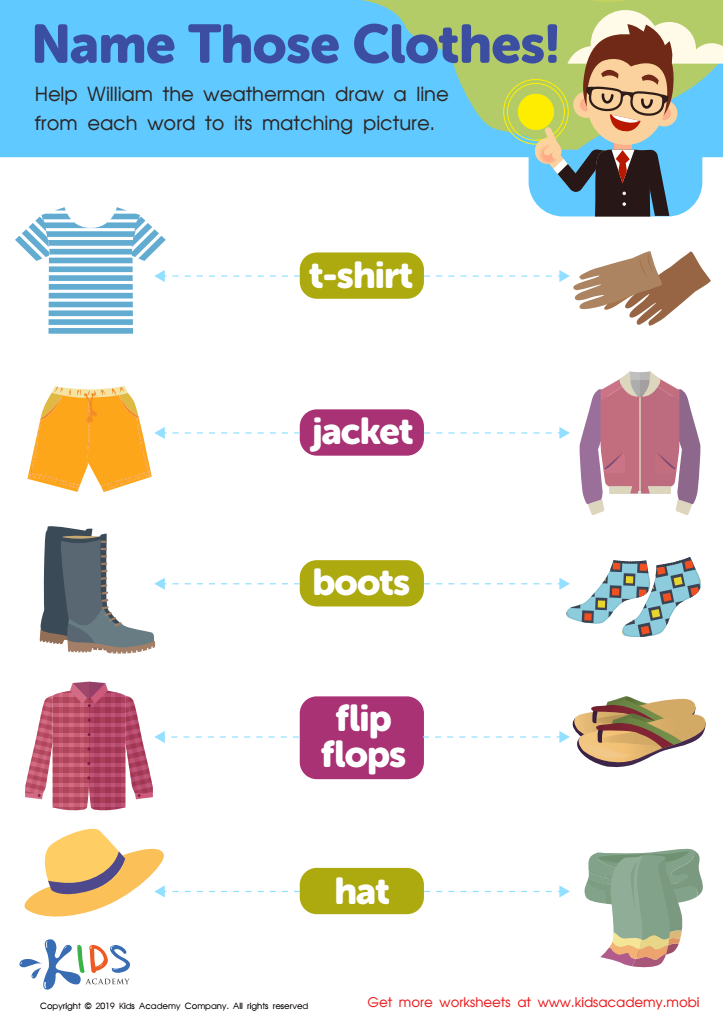

Name Those Clothes Worksheet
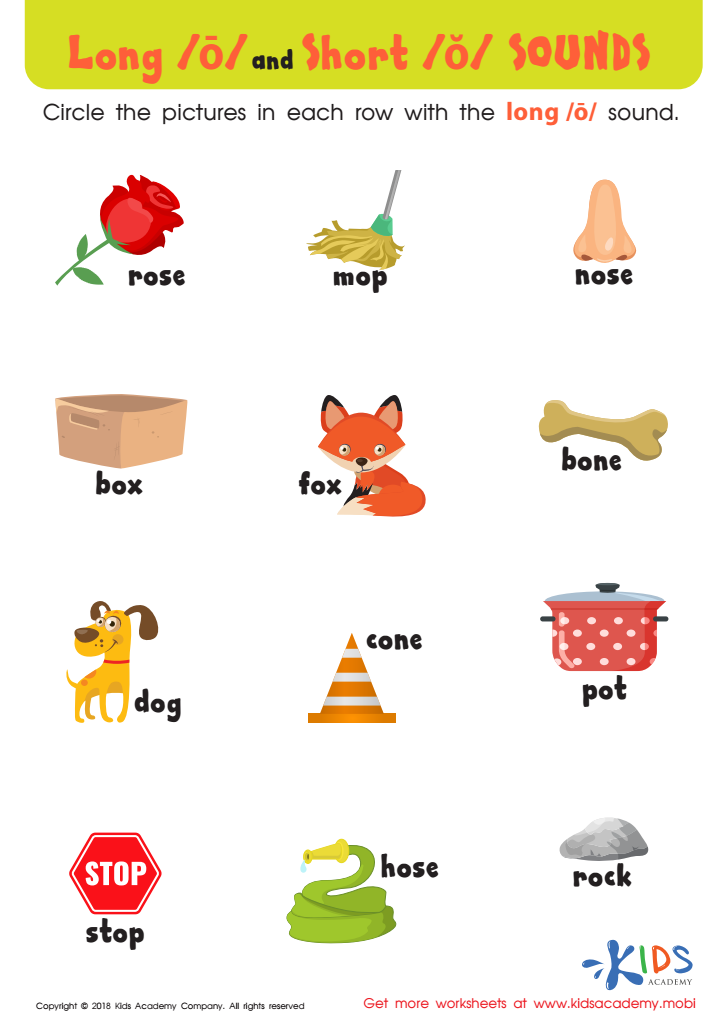

Reading: Long O and Short O Sounds Worksheet
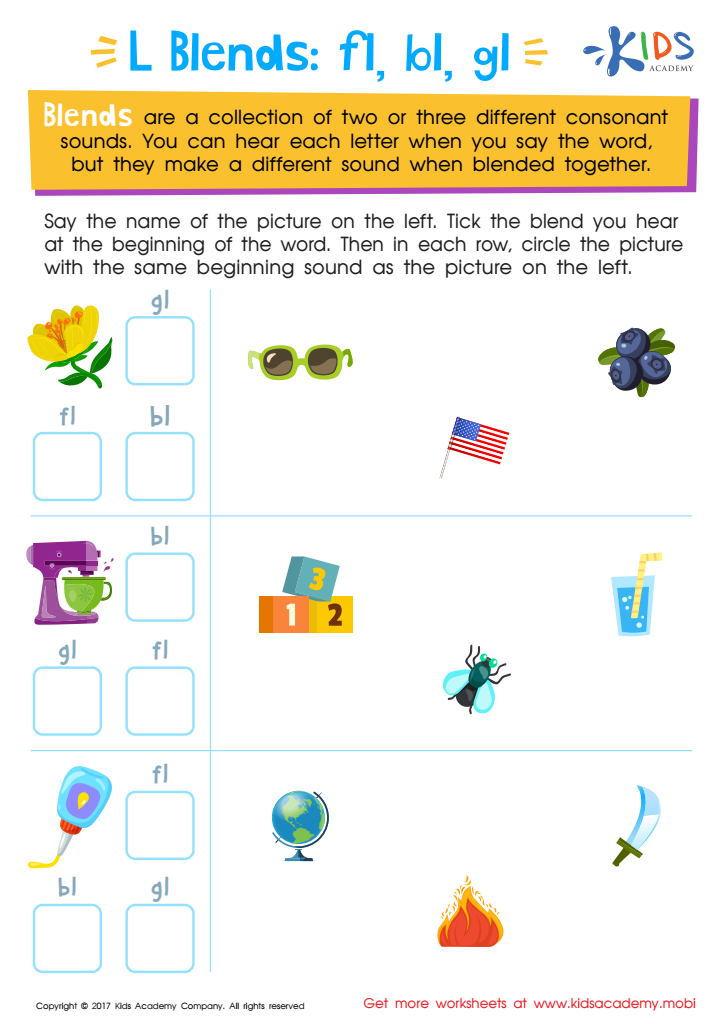

Blending Consonants: "Fl", "Bl" and "Gl" Printable
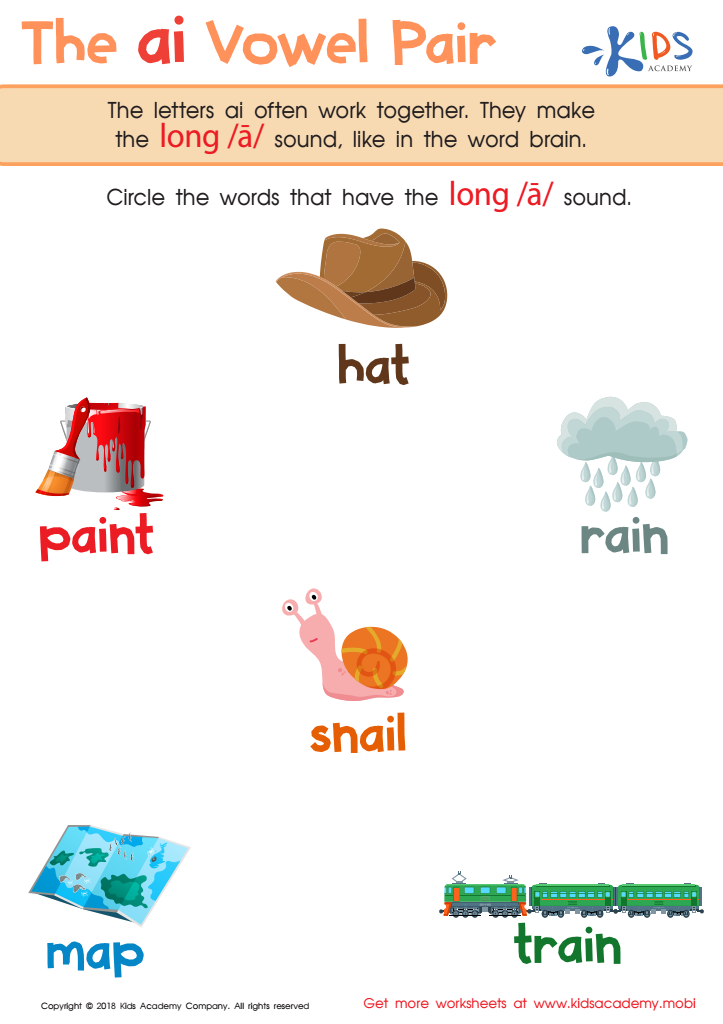

The AI Vowel Pair Worksheet
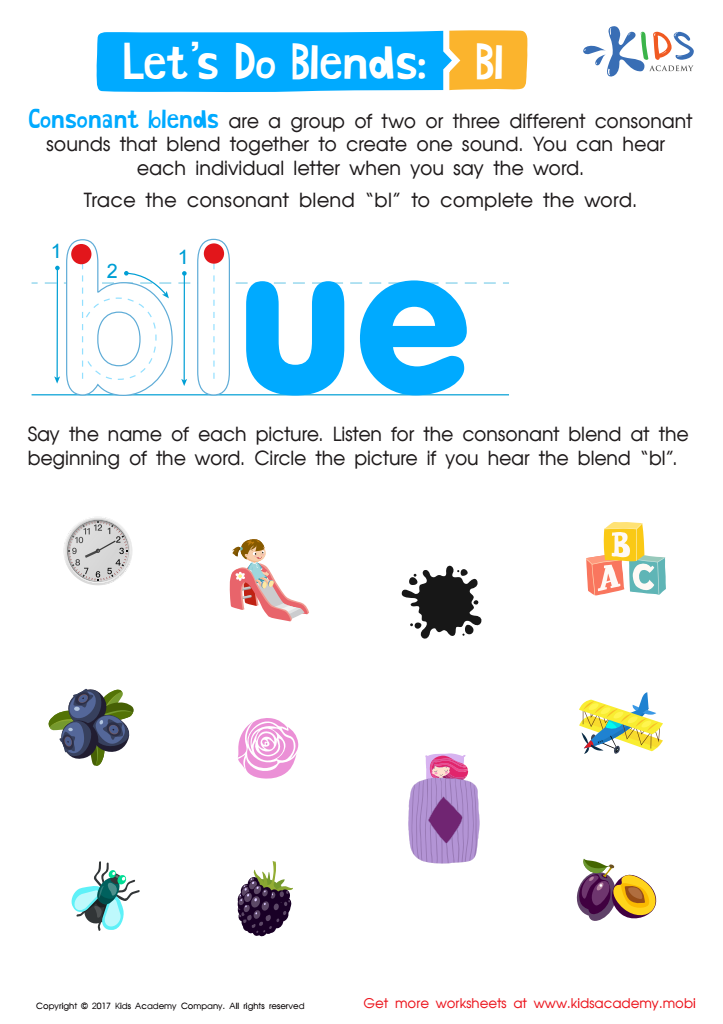

Beginning Blends: "Bl" Words Worksheet
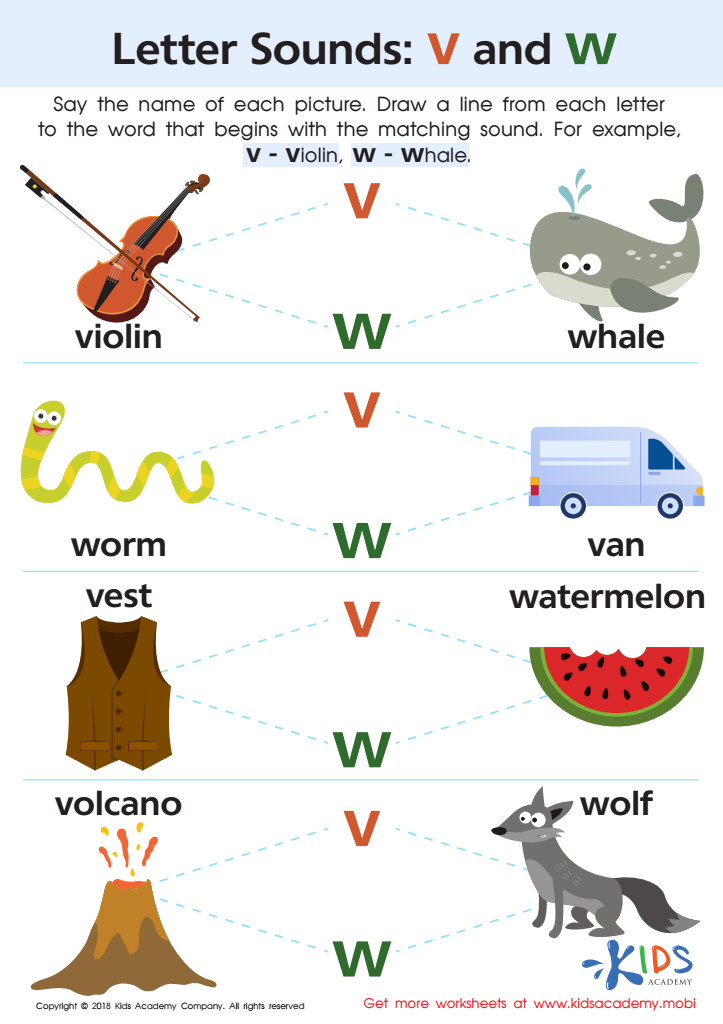

Letter V and W Sounds Worksheet
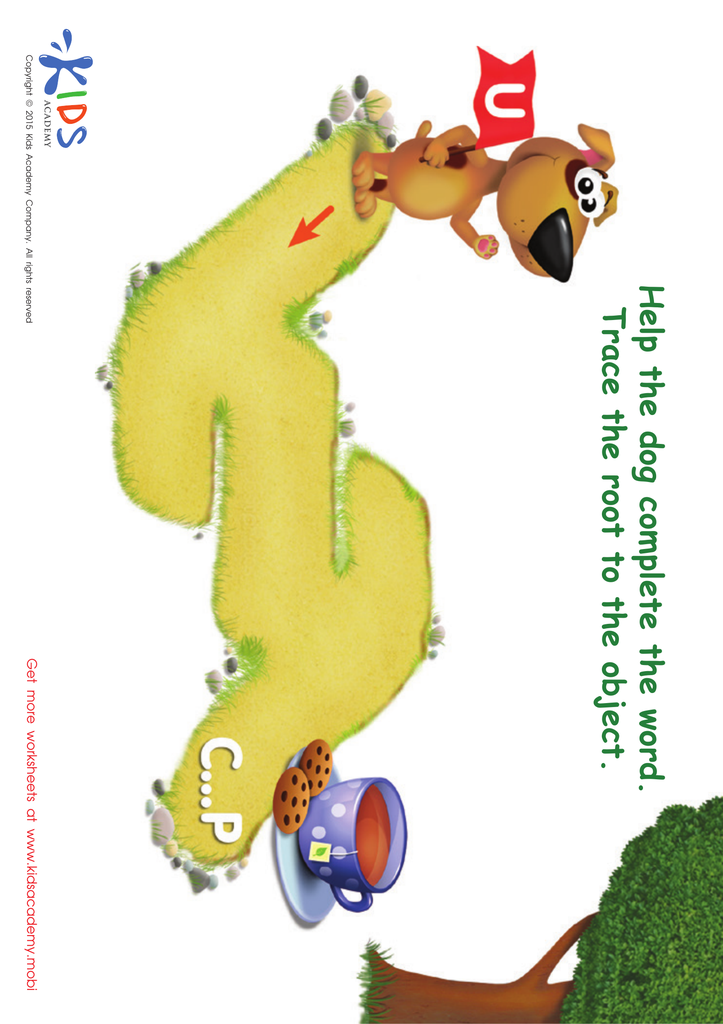

Short Vowel Sound U Worksheet Worksheet
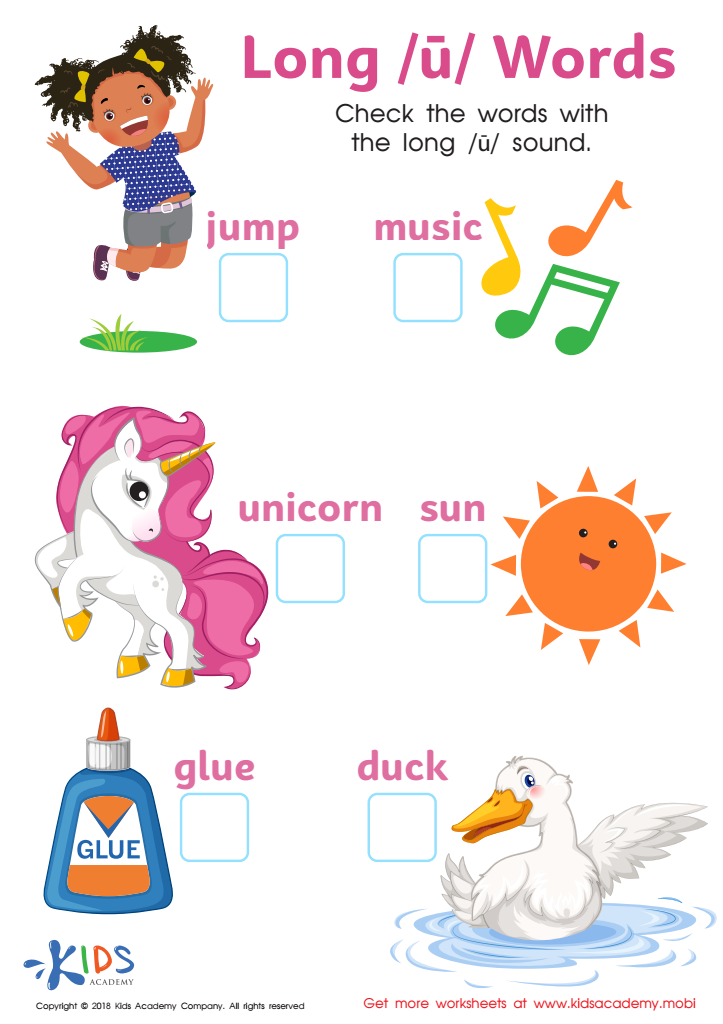

Long U Words Reading Worksheet
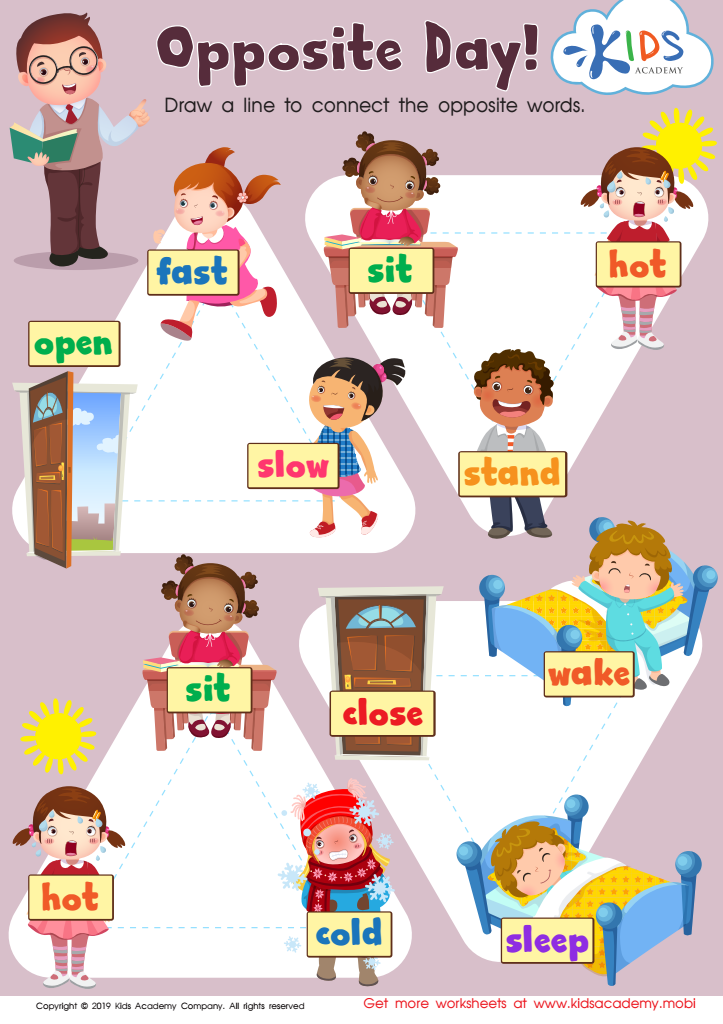

Opposite Day Worksheet


Short Vowels /e/, /i/, and /u/ Worksheet
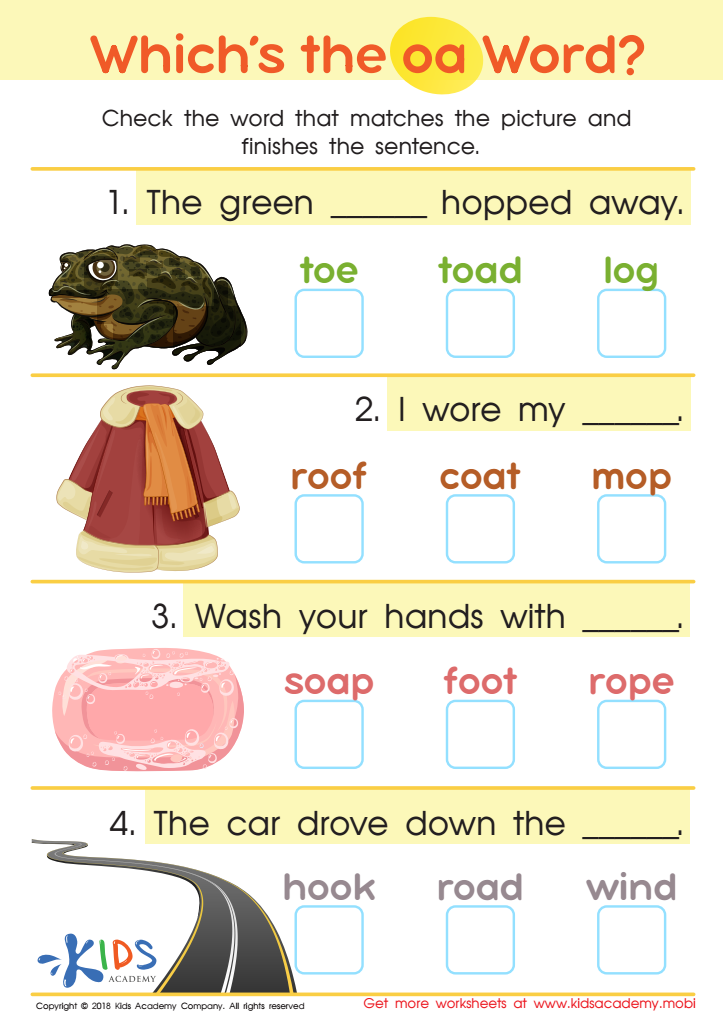

Which's the OA Word? Worksheet
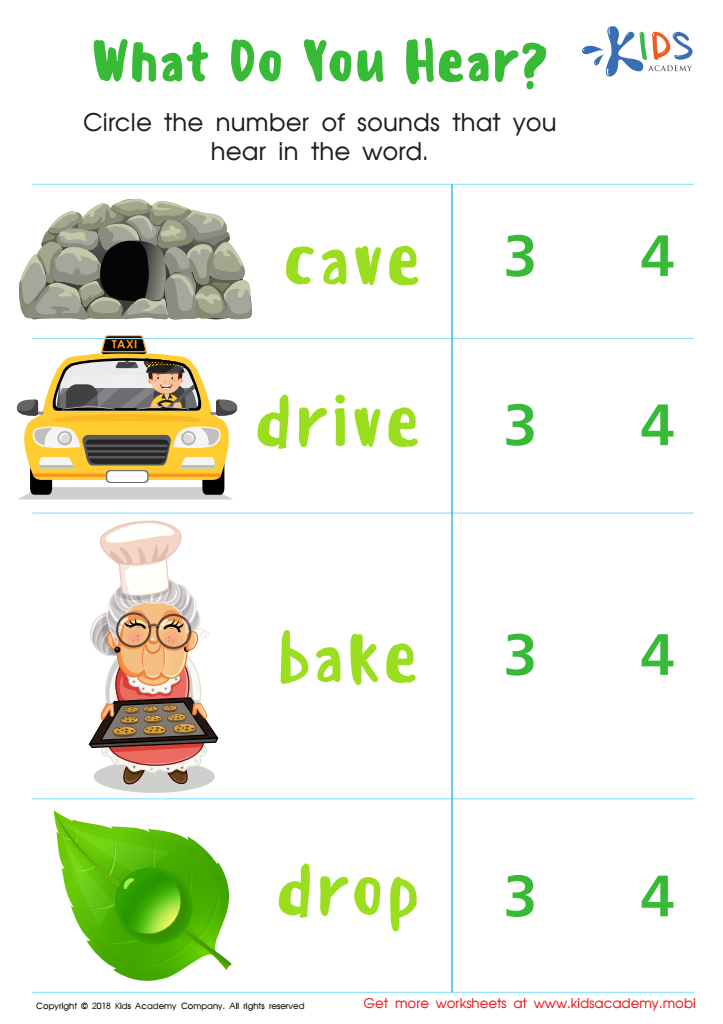

What Do You Hear? Worksheet
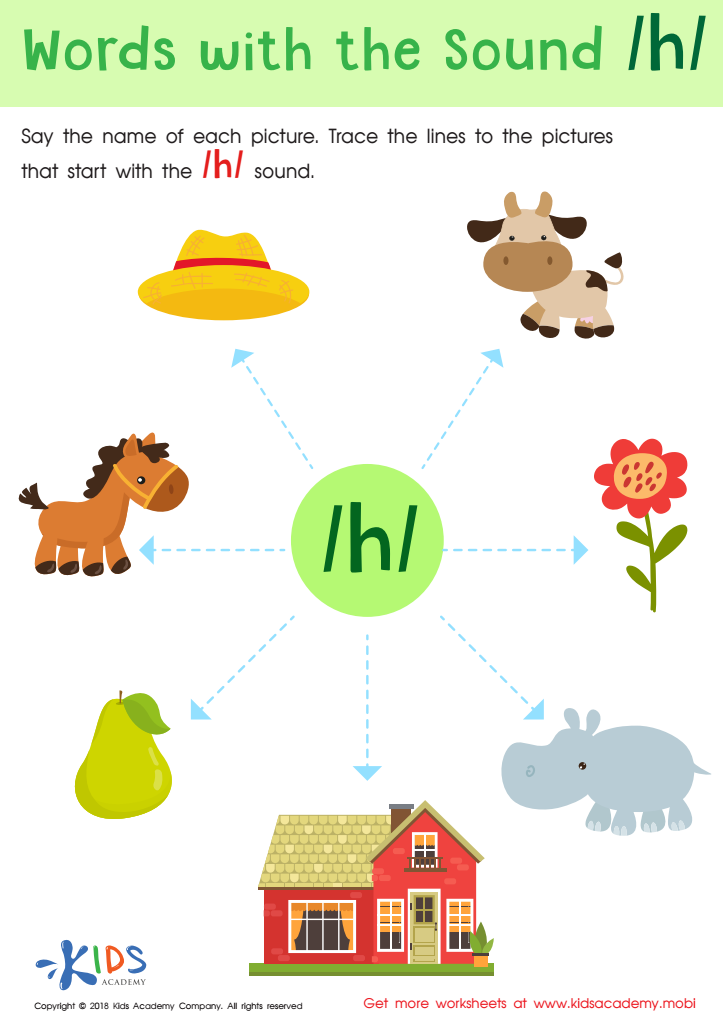

Words with sound h Reading Worksheet
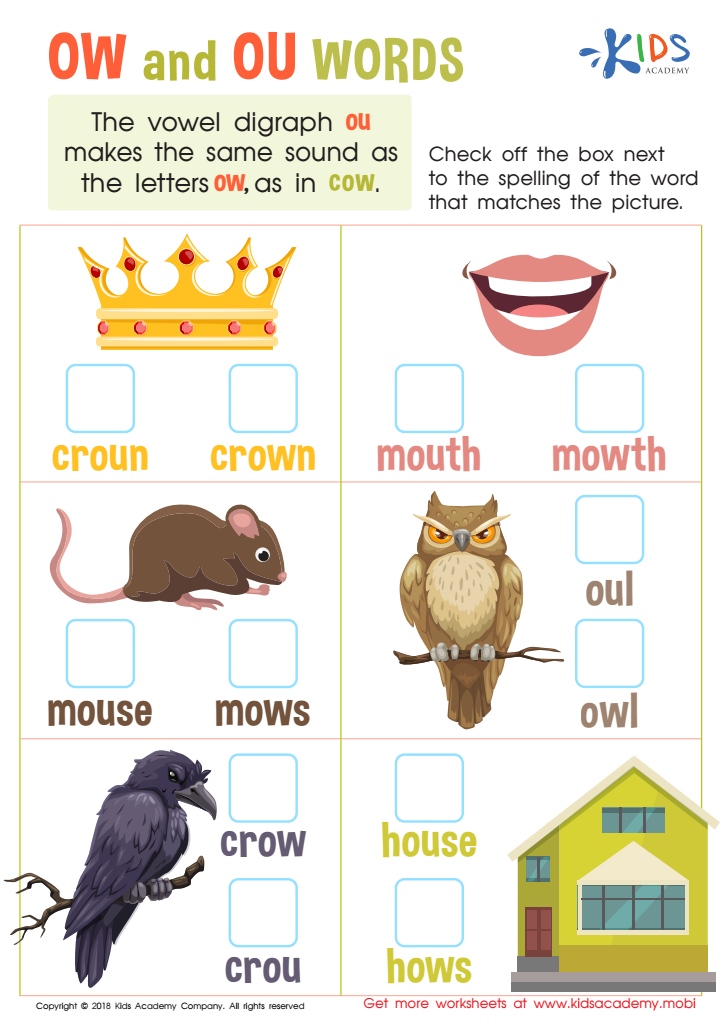

Reading: OW and OU Words Worksheet
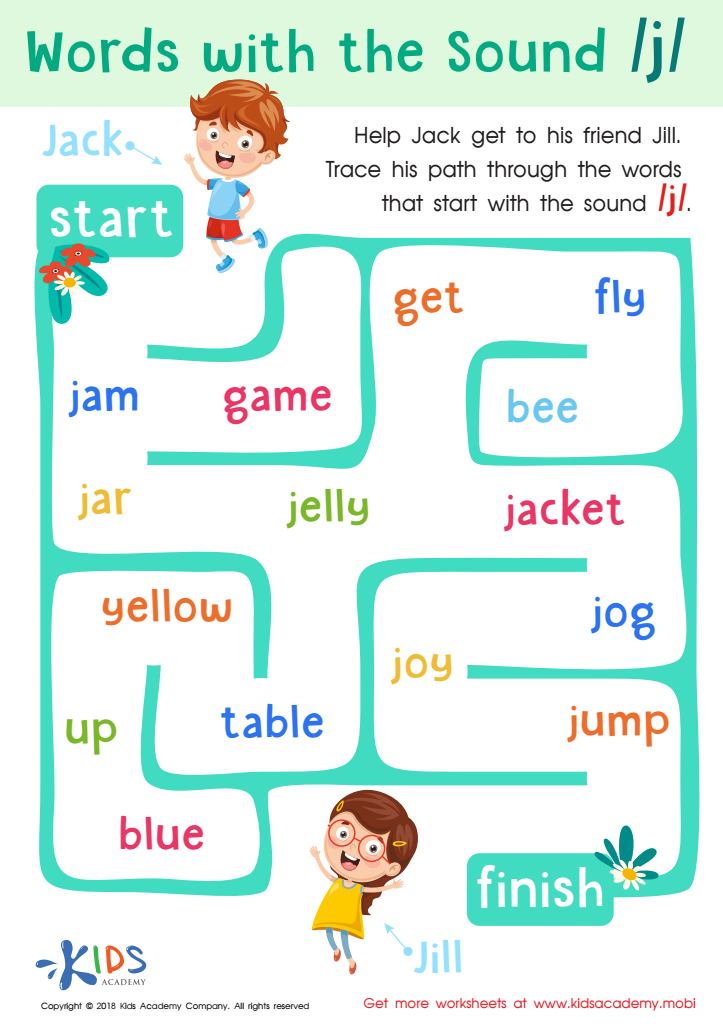

Words with sound j Reading Worksheet
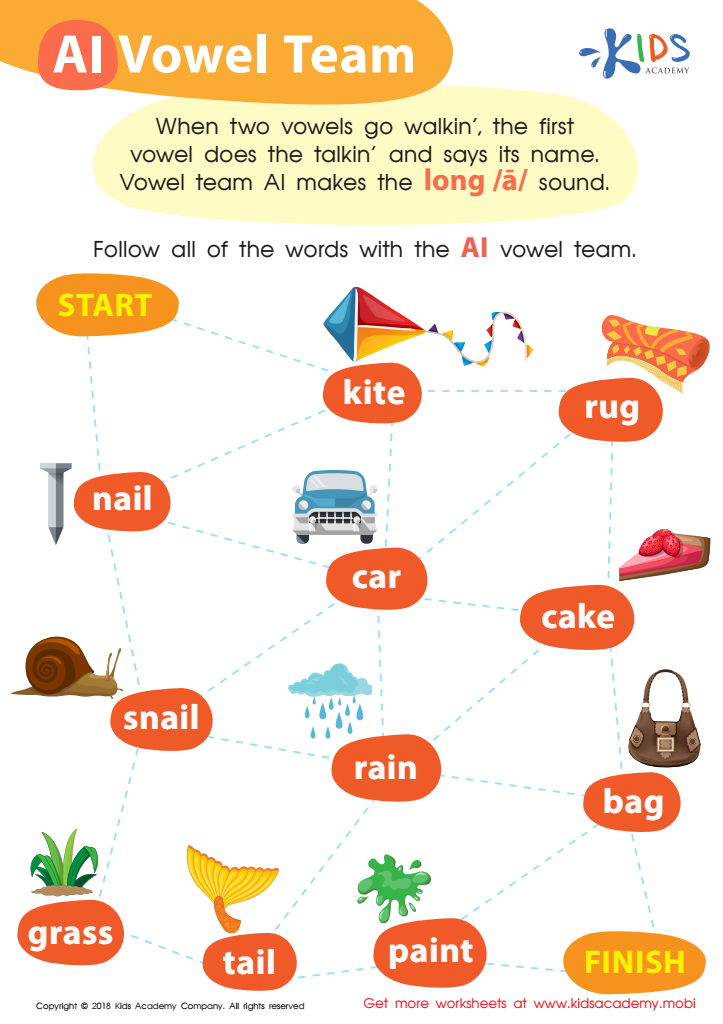

Reading: AI Vowel Team Worksheet
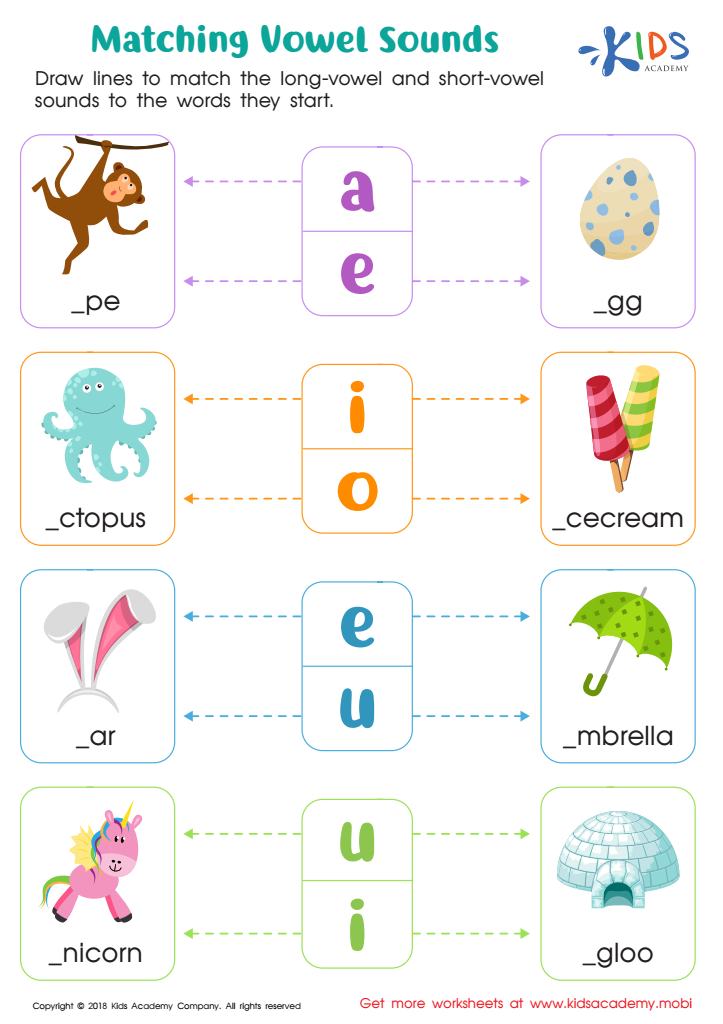

Matching Vowel Sounds Worksheet
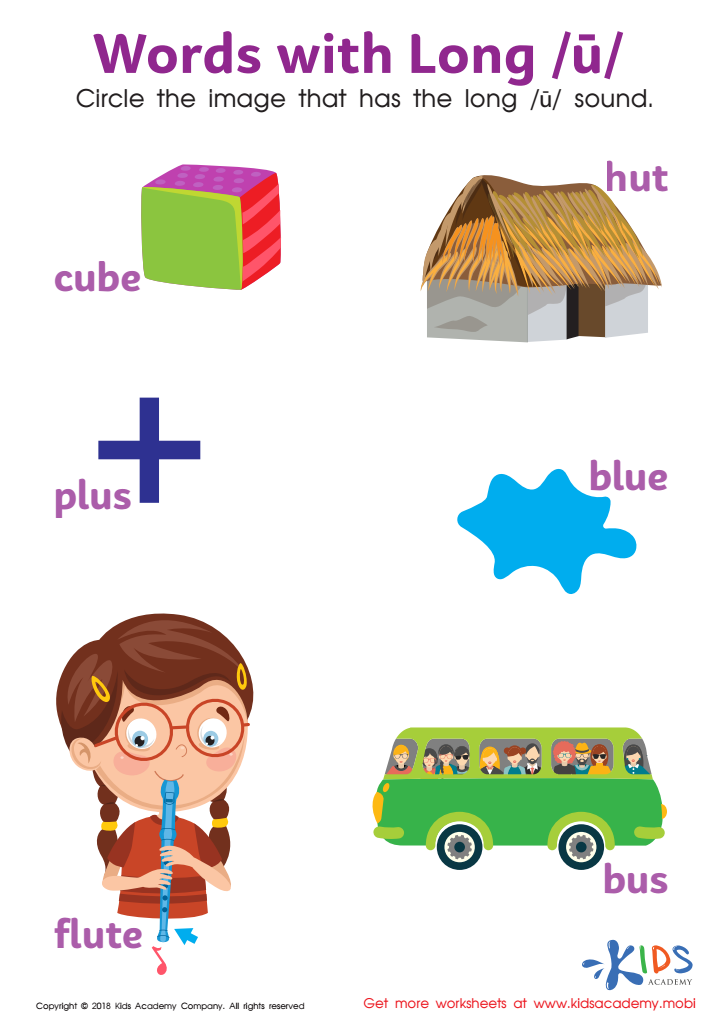

Words with Long U Reading Worksheet
Vocabulary expansion through phonics is crucial for children aged 5-7 as it forms the foundation of their reading and language skills. At this age, children are not only learning to decode words but are also expanding their understanding of language, which is essential for academic success and effective communication throughout life.
Phonics teaches children the relationship between sounds and letters, enabling them to decode new words independently. This skill directly impacts vocabulary acquisition, allowing children to explore and engage with a broader range of texts. The more words they know, the more they can understand when reading, writing, and speaking, enhancing their overall literacy development.
Moreover, an expanded vocabulary enriches a child’s cognitive skills, boosting comprehension and critical thinking. Research shows that a strong vocabulary at a young age often correlates with higher academic achievement and better literacy skills later on.
For parents and teachers, supporting vocabulary growth through phonics activities—like reading together, playing word games, and exploring new words—creates a fun learning environment. This collaborative effort not only encourages a love for language and reading but also fosters a lifelong passion for learning, benefiting children in their future educational journeys.

 Assign to My Students
Assign to My Students




















